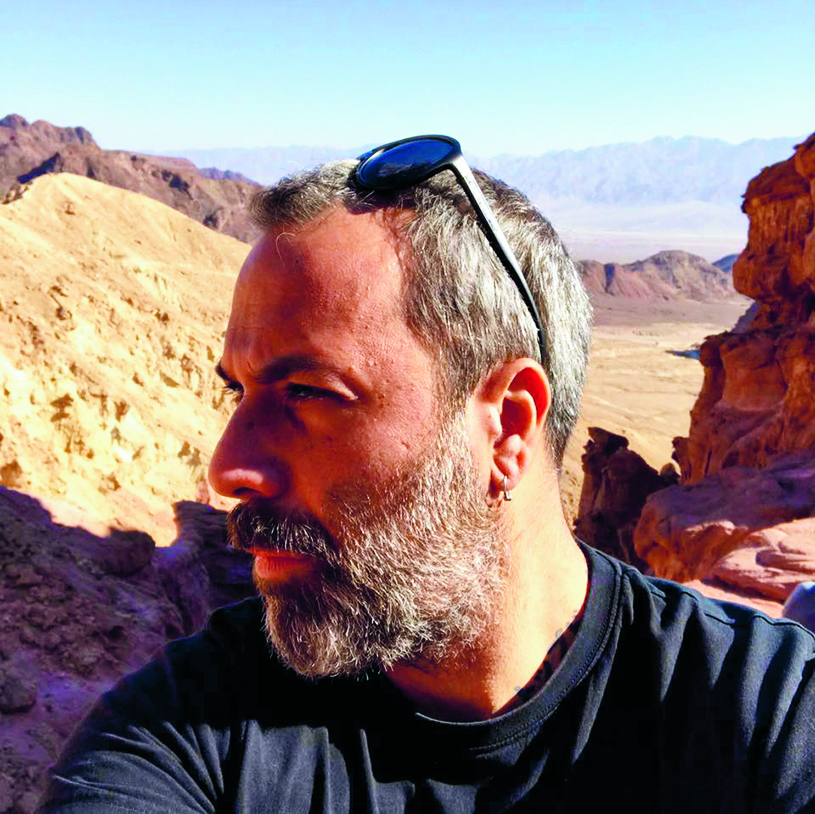‘We will stay, trying to do the best for our children’
A Greek journalist living in Israel describes the shock felt by Israelis following Hamas' attack

“The situation reminds me of the days after the terrorist attack on the Twin Towers in New York in 2001: Like the Americans then, the Israeli people are shocked, frozen, terrified. A few years ago, in the Netflix TV series ‘Fauda,’ we watched scenes of ISIS raids on Israeli soil, killing and abducting civilians, and it seemed to us far-fetched scripted findings, unreal, products of propaganda. What we see happening today is a hundred times worse,” says Achilleas Peklaris, a Greek journalist residing in Israel, speaking to Kathimerini on the phone.
He and his family – his wife Natalie and their twin babies, a boy and a girl who “turned 9 months old on the day of the invasion” – are in the coastal city of Hadera, one of the safest in Israel, away from the borders with Lebanon and Gaza.
“Unfortunately, many friends and acquaintances do not feel the same security. They are leaving their homes in haste and seeking shelter in the north, in places that are very difficult for rockets to reach. We are all wondering how this happened, how we got here, how it was possible for such an attack to be organized under the noses of the country’s powerful secret services – to whose reflexes Israel owes its very existence and survival,” he says.
‘We are all wondering how this happened, how we got here, how it was possible for such an attack to be organized under the noses of the country’s powerful secret services’
“This is a huge personal defeat for Prime Minister Benjamin Netanyahu, a tragic failure, much worse than the Yom Kippur War of 1973. Then, in one week, about 700 Israelis were killed. Many more have now lost their lives in just one day.”
What explanation does he give for this failure? “There are many scenarios: from complacency to deliberate misinformation from some sources that were considered reliable. The answers will be given at some point by the government, they must be given,” Peklaris says.
“However, what now takes precedence is the effective management of the crisis and the response to Hamas. There is an urgent need to have negotiations over the hostages, and the ground invasion of Gaza should probably be taken for granted. Thus the vicious cycle will continue, since Hamas will probably organize new attacks. Blame those who, for decades, have been spreading the hate from both sides with consistency and reverence.”
How is everyday life in the country? Are supply chains working? Are the Israelis working? “Apart from schools, everything is working normally. The traffic, of course, is much reduced, most people have chosen to work from home. In the supermarkets yesterday the shelves were empty, everything had been bought. Today the power supply was restored and there were no queues,” he explains.
A friendly couple in their 30s, Greek American Aris and Israeli Tali, were at the music festival near the border with Gaza, where 260 people were massacred on Saturday. “They were saved by a miracle. He was insisting that they stay longer to see the sunrise, but she was tired. They left two hours before the attack,” he tells Kathimerini.
I ask him if there is any information about other Greeks who want to return to Greece. “We have received the relevant information from the Greek Embassy through a WhatsApp group. Dozens have already left,” Peklaris says.
Is he thinking of doing the same? “No. Having worked with refugees, mainly Syrians and Iraqis, on the islands of the eastern Aegean during the big refugee crisis in the middle of the last decade, I know well that in order to leave one’s home the situation must be unlivable. That is not the case here. So we will stay, trying to do the best for our children. You know, I feel like [Italian actor Roberto] Benigni, in the movie ‘Life is Beautiful.’ I laugh, I sing to them, I say, like him, ‘buongiorno principessa.’ This is my role as a father: to keep our babies safe, not to let this darkness touch them.”






